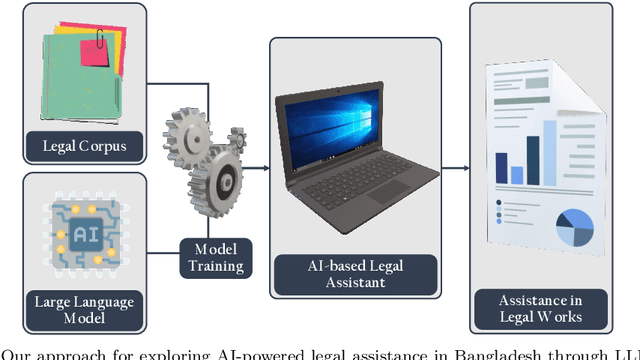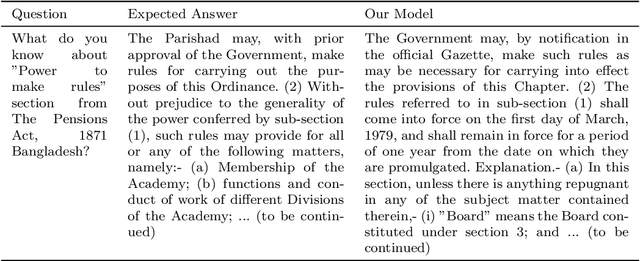Wahid Faisal
SpatiaLab: Can Vision-Language Models Perform Spatial Reasoning in the Wild?
Feb 03, 2026Abstract:Spatial reasoning is a fundamental aspect of human cognition, yet it remains a major challenge for contemporary vision-language models (VLMs). Prior work largely relied on synthetic or LLM-generated environments with limited task designs and puzzle-like setups, failing to capture the real-world complexity, visual noise, and diverse spatial relationships that VLMs encounter. To address this, we introduce SpatiaLab, a comprehensive benchmark for evaluating VLMs' spatial reasoning in realistic, unconstrained contexts. SpatiaLab comprises 1,400 visual question-answer pairs across six major categories: Relative Positioning, Depth & Occlusion, Orientation, Size & Scale, Spatial Navigation, and 3D Geometry, each with five subcategories, yielding 30 distinct task types. Each subcategory contains at least 25 questions, and each main category includes at least 200 questions, supporting both multiple-choice and open-ended evaluation. Experiments across diverse state-of-the-art VLMs, including open- and closed-source models, reasoning-focused, and specialized spatial reasoning models, reveal a substantial gap in spatial reasoning capabilities compared with humans. In the multiple-choice setup, InternVL3.5-72B achieves 54.93% accuracy versus 87.57% for humans. In the open-ended setting, all models show a performance drop of around 10-25%, with GPT-5-mini scoring highest at 40.93% versus 64.93% for humans. These results highlight key limitations in handling complex spatial relationships, depth perception, navigation, and 3D geometry. By providing a diverse, real-world evaluation framework, SpatiaLab exposes critical challenges and opportunities for advancing VLMs' spatial reasoning, offering a benchmark to guide future research toward robust, human-aligned spatial understanding. SpatiaLab is available at: https://spatialab-reasoning.github.io/.
Exploring Possibilities of AI-Powered Legal Assistance in Bangladesh through Large Language Modeling
Oct 22, 2024



Abstract:Purpose: Bangladesh's legal system struggles with major challenges like delays, complexity, high costs, and millions of unresolved cases, which deter many from pursuing legal action due to lack of knowledge or financial constraints. This research seeks to develop a specialized Large Language Model (LLM) to assist in the Bangladeshi legal system. Methods: We created UKIL-DB-EN, an English corpus of Bangladeshi legal documents, by collecting and scraping data on various legal acts. We fine-tuned the GPT-2 model on this dataset to develop GPT2-UKIL-EN, an LLM focused on providing legal assistance in English. Results: The model was rigorously evaluated using semantic assessments, including case studies supported by expert opinions. The evaluation provided promising results, demonstrating the potential for the model to assist in legal matters within Bangladesh. Conclusion: Our work represents the first structured effort toward building an AI-based legal assistant for Bangladesh. While the results are encouraging, further refinements are necessary to improve the model's accuracy, credibility, and safety. This is a significant step toward creating a legal AI capable of serving the needs of a population of 180 million.
Dhoroni: Exploring Bengali Climate Change and Environmental Views with a Multi-Perspective News Dataset and Natural Language Processing
Oct 22, 2024Abstract:Climate change poses critical challenges globally, disproportionately affecting low-income countries that often lack resources and linguistic representation on the international stage. Despite Bangladesh's status as one of the most vulnerable nations to climate impacts, research gaps persist in Bengali-language studies related to climate change and NLP. To address this disparity, we introduce Dhoroni, a novel Bengali (Bangla) climate change and environmental news dataset, comprising a 2300 annotated Bangla news articles, offering multiple perspectives such as political influence, scientific/statistical data, authenticity, stance detection, and stakeholder involvement. Furthermore, we present an in-depth exploratory analysis of Dhoroni and introduce BanglaBERT-Dhoroni family, a novel baseline model family for climate and environmental opinion detection in Bangla, fine-tuned on our dataset. This research contributes significantly to enhancing accessibility and analysis of climate discourse in Bengali (Bangla), addressing crucial communication and research gaps in climate-impacted regions like Bangladesh with 180 million people.
 Add to Chrome
Add to Chrome Add to Firefox
Add to Firefox Add to Edge
Add to Edge